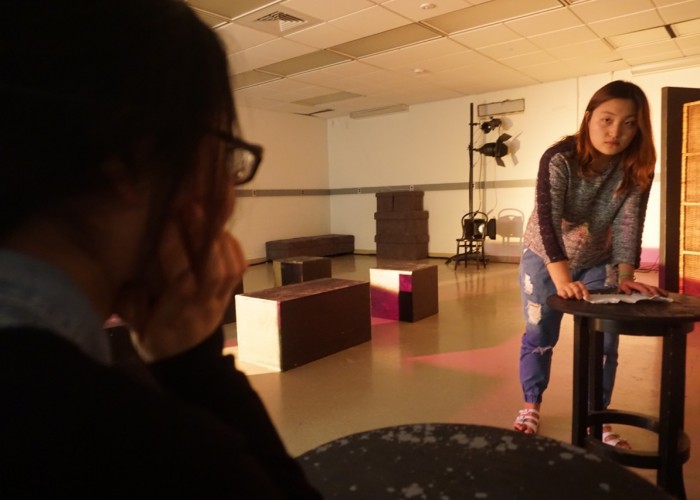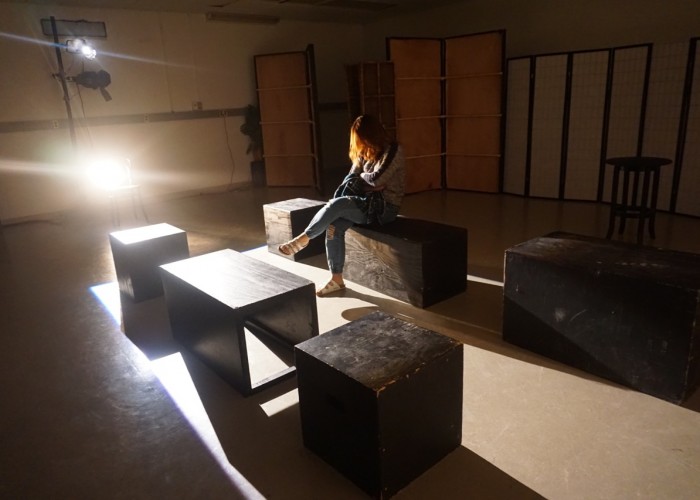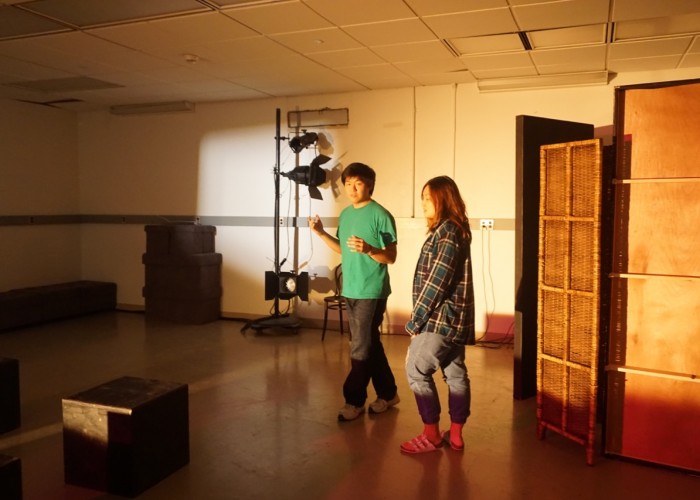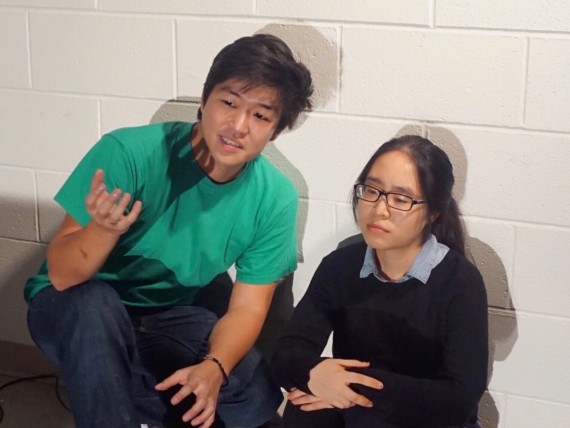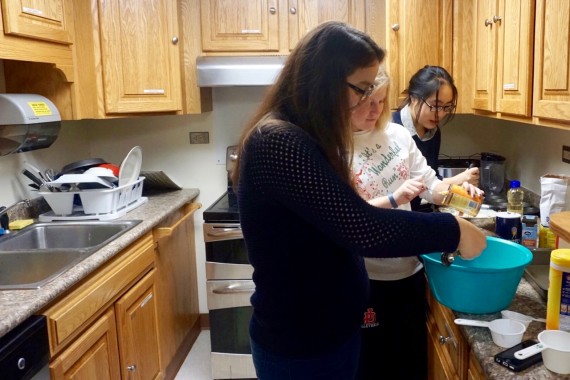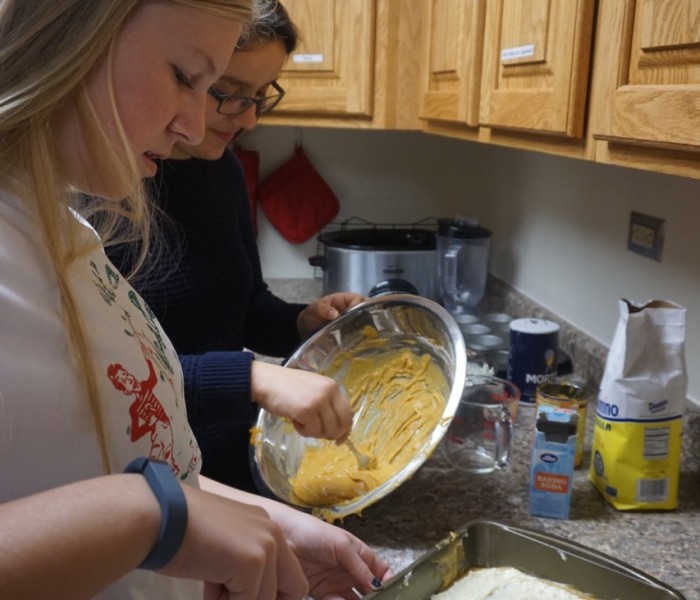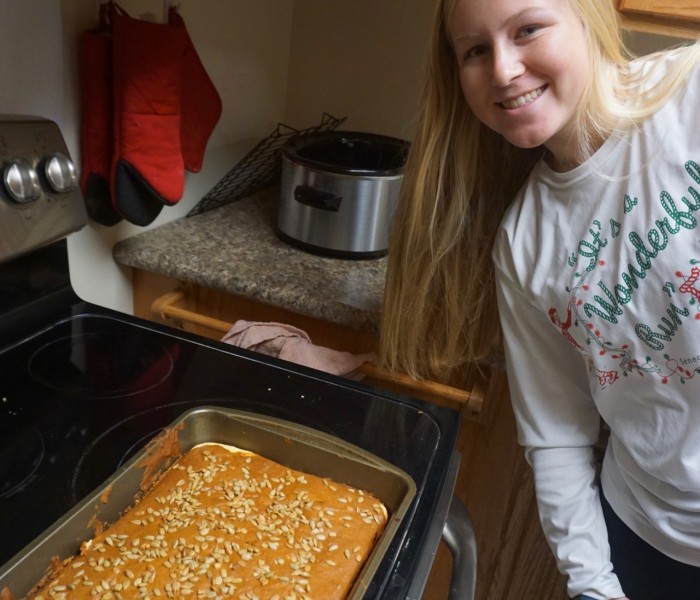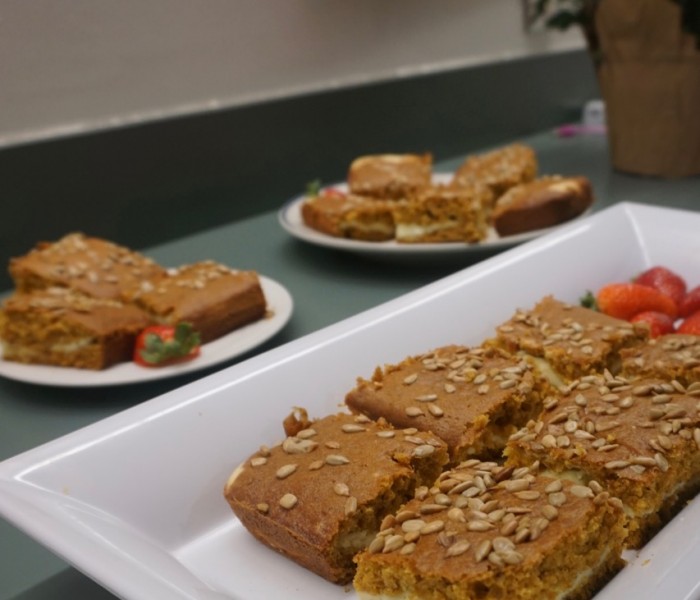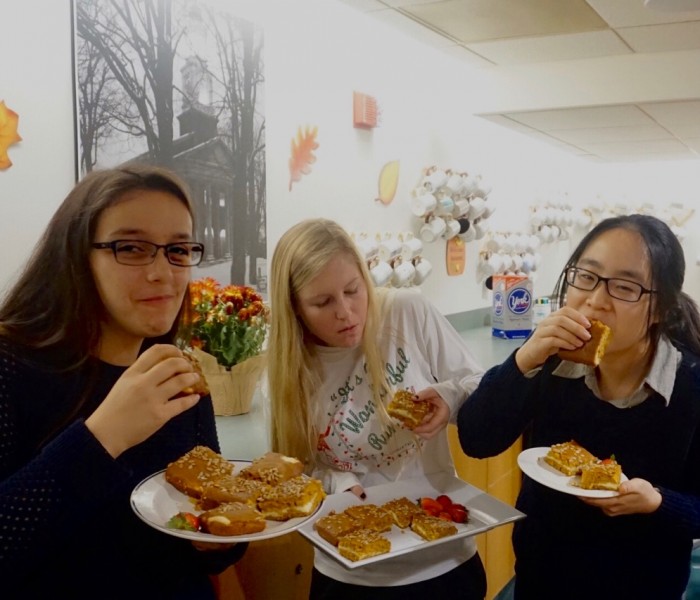In the blog series XYZ with Q, Quanzhi “Q” Guo ’18 visits current and former Benton Scholars to learn about their interests, passions, and accomplishments. In the fifth installment of the series, Q visits Jungmin Kang ’16, a double major in Theatre and Educational Studies, for a scene rehearsal. Besides sharing his passion for theatre, Jungmin also talks about his views on education in Asia.
It was 1am by the time I left my first ever theatre practice. Even by the time I got to bed, I was still pumped-up by emotions evoked during the scene and thoughts on my own educational experience. And it was all thanks to Benton Scholar Jungmin Kang ’16.
Jungmin was rehearsing a scene for his directing class taught by Simona Giurgea. The protagonist, played by Solhee Dein Bae ’17, got off at the wrong train station, encountered rude treatments by other travelers, and was rebuffed when asking for direction—in a country whose language she could hardly speak.
Because the scene was pseudo-interactive, I was free to participate. Taking a more active role in the landscape of play was a novel and engaging experience for me. With only a few lines , the simplicity of the scene left plenty of room for my own interpretation and called up my memories of being a traveller, sojourner, and foreigner.
To take advantage of my nostalgia, I tried out part of the scene, where the girl curled up in a dark corner. Thanks to Jungmin, I managed to express that forlornness—at least in the photo.
Not many Benton Scholars major in Theatre, so I wondered what led Jungmin here. “I was in theatre club in high school and liked it a lot, but I didn’t come to Colgate thinking that I would do theatre,” he said. His first actual production was The Threepenny Opera by Bertolt Brecht during his freshman year. “I played Tiger Brown and the street singer who gets to sing the most famous song in the play: Mac the Knife!”
But the key moment to pursue the major came later.
The following spring, Jungmin took an off-campus study semester at the National Theatre Institute (NTI) in Connecticut, and he continued there as a summer intern. “As much as I enjoy the theatre I have done at Colgate, if it hadn’t been that semester, I won’t be so sure that theatre is something I want to do for my life.”
A conservatory program that includes directing, playwriting, design, acting, movement and voice, the NTI Semester develops students to be a complete artist. “It was the most intensive semester in my life … 7 days a week, 12 hours a day. We were basically putting up a show every week, so you really get a broad range of viewpoints and get trained in all disciplines,“ Jungmin said.
Prior to attending Colgate, Jungmin lived in California for 9 years. But he spent his childhood in South Korea. Looking between cultures, he sees differences and challenges among the educational models—particularly the South Korean model, which he believes values performance on tests rather than knowledge itself.
“The suicide rate is through the roof. Students are killing themselves because of grades and not getting to colleges,” he said. “I think prioritizing something over human life is ridiculous.” So, while the world may look to Asia as a model for education—its students get spectacular scores on international education tests—the system is also criticized for spreading a culture of competition, one that encourages students to see academic performance as their only source of validation and self-worth.
Some may see Jungmin’s path as unconventional, but he isn’t bothered. “It is hard when people expect you to do something great. And it is very difficult not to think about it. But ultimately people you care about the most want to see you happy and do what you want,” he said. “In both theatre and education, you are looking at people. But in both fields, we sometimes lose track of that. In theatre, we start to think about all the lights and what is a well-written play … but the most important thing is that you are looking at human nature. That’s what makes theatre so powerful. And in education, we get so wrapped up in scores, what are the best policies, what are the jobs these students get and the statistics, but what you should be trying to do is the personal development of human beings and intellectual growth,” Jungmin said.
To set aside the narrow conviction of success and to humanize deep-set cultures are not easy, but I am glad that we are starting to confront these problems and reflect on what we truly want as human beings.


